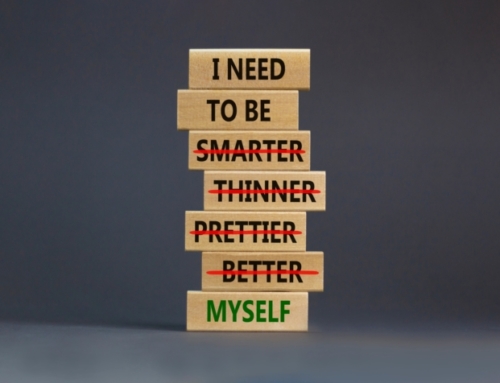After last week’s post about sustainability, I received this response from reader Lou.
“Your post is on domain of work, and you say “The main reason for this post is that you have to count on yourself to make those changes. All too often you cannot count on anyone else to concern themselves with your wellbeing.”
I wonder if sustainability in other domains of life (individual pursuits, family, social circles, etc.) might follow the same ethos?” – Lou
When I wrote about only being able to count on yourself for your wellbeing, I know that can sound cynical. So, I want to expand my point to both answer Lou’s question and present a non-cynical yet realistic view of what a person can count on others for and how this can be done.
I do not believe that humans are only in it for themselves. I do not believe you sink or swim on your own and that others will watch you drown. As humans, we are deeply and primordially interdependent. We are pack animals, similar in that way to wolves, dolphins, chimpanzees, and lions, to name a few. We are not ‘lone wolves’ – lone wolves are often dead wolves – nor lone tigers.
When I say that you must count on yourself to make necessary changes to your life and that you cannot count on anyone else to concern themselves with your life, I see this as a realistic mindset that optimizes positive life outcomes. I do not mean that people never concern themselves about others’ wellbeing, only that a person cannot and should not count on it for their wellbeing as a matter of default.
There are, of course, always going to be individuals who truly do not care a whit about you and your wellbeing. But among the rest who can and do show concern for others, there are reasons they will NOT be on the lookout for your wellbeing.
There are three reasons for this. The first is that the nature of the relationship between you and other people at work – clinical colleagues and administrators in charge – does not lend itself to their attending to your wellbeing and intervening if they think something is wrong. If your performance drops precipitously someone will no doubt notice. Then the boss will intervene because it is his or her job to keep productivity up. Your ‘friends’ at work may also notice when things are bad and reach out to – gingerly – ask you if you’re ok.
You don’t want to be in a position of waiting for other people to initiate a conversation with you about your health and wellbeing because you may be waiting a long time. If such a conversation happens, it usually means things are really seriously not going well for you. The hurdle for such conversations is high.
These bosses and work colleagues are not necessarily bad people. They simply don’t have the type of relationship – one of true friendship – that would allow them to initiate an uncomfortable conversation with you about you.
The second reason that you can’t count on the many good people around you to keep your best interests in mind is because most people are not initiative takers. If the relationship between you two is not one conducive to intimate sharing of concerns, they’ll likely take a pass.
And the third reason is that almost everyone is so busy, burdened, and overwhelmed with their own worries, that they don’t have enough presence to even notice your problems, let alone address them.
If you doubt any of this, ask yourself this: when was the last time you started a conversation with anyone at work about your concern about their emotional state and general wellbeing?
Despite all these reasons to count on yourself, the answer is NOT to give up on other people entirely. It is instead to know that to activate other people to help you with your issues requires direct intervention on your part. You are the one who must initiate a conversation.
If you are overwhelmed and burned out at work, you will do much better if you bring your concerns about your wellbeing to the powers that be. Or if you repeatedly encounter bad work conditions that no one else seems to be doing anything about, then it is up to you to initiate whatever conversations are needed with fellow clinicians and/or administrators.
In response to the conversation you initiate, the powers that be are likely to listen and even make changes that will enable you to take care of yourself or to mend whatever ails the organization. If they don’t, at least now you know where you stand and can take the next step. That might be to seek out someone else to help, escalate your efforts, or leave and get another position.
Once people are confronted, gently and politely or more forcefully, many will notice – often for the first time – that you are facing problems. They will be mobilized to offer you help – or not. You can’t count on everyone for everything. At best, you can count on some people for some things.
But for those who ask, often incredible amounts of help and participation become available.
So, this is my realistic and non-cynical view of human relations: you must count on yourself for your wellbeing. Other people will likely not notice your needs nor initiate action to meet them. However, most people are good and are willing to help. But to activate that help, the initiative must come from you.
I’ve focused on work and work colleagues and administrators. I think much of what I said relates also to friends and family. When you initiate conversations and take other relevant actions, you will mobilize others, not only to help you but to help all parties involved. If you are suffering at work, likely so are many colleagues. If you are suffering at home, likely so are your family members. Pain, tension, trauma, etc. rarely affect only one person in that environment. It is remarkable how much suffering and pain can continue when so many people are affected. It often takes that one brave – or most fed up – soul to initiate the chain of events that will change that environment for the better for everyone there.
It is not easy to be the initiator. Tell me about what you find challenging about taking on this role. Share a story about when you did or did not take initiative when initiative was called for.
Thanks and ‘til next time.
Dr. Jack
Language Brief
“Lots of people don’t use their initiative because no one told them to.” ― Banksy
“Initiative is the privilege of picking yourself.” ― Seth Godin
“I am thankful for all of those who said NO to me. It’s because of them I’m doing it myself.” ― Albert Einstein
“Never interrupt someone doing something you said couldn’t be done.” ― Amelia Earhart







Leave A Comment